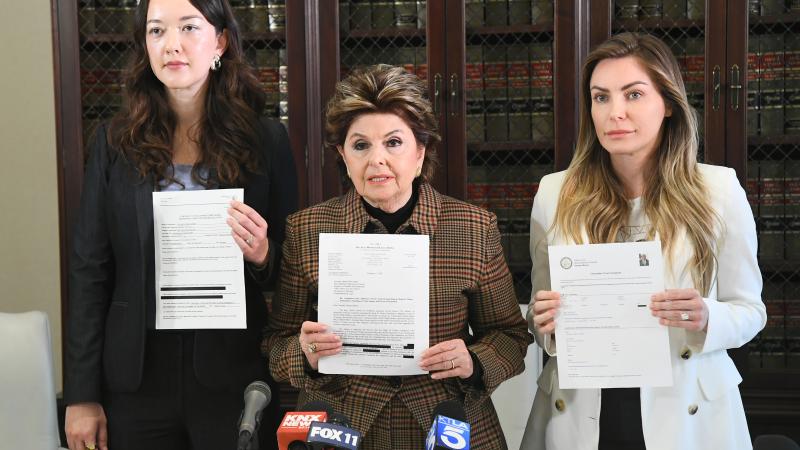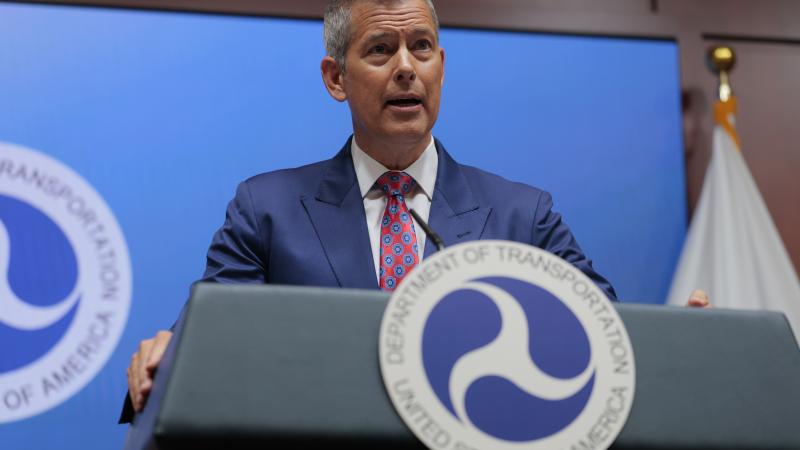Citizens launch billboards criticizing Spokane mayor over homelessness, transparency
Protests follow the apparent lack of an emergency shelter plan ahead of this winter.
Billboards started to pop up around Spokane on Monday, calling out Mayor Lisa Brown over the spiraling state of homelessness, and her supporter(s) paid for them.
According to the billboards, the effort was paid for by concerned citizens and organized by H.T. Higgins, a former teacher at Gonzaga Preparatory School, who donated $1,200 to Brown’s 2023 mayoral campaign. Last week, he held a protest outside City Hall, sporting a similar message.
“MAYOR BROWN,” the billboard reads in large red letters. “You promised something different than the Woodward Administration. What is Different? Engagement? Transparency? Are our unhoused friends better off? Are our Downtown Businesses better off?”
Last week’s protest, and now the billboards, follow the apparent lack of an emergency shelter plan ahead of this winter. Local law requires Spokane to open warming/cooling centers when temperatures pass a certain threshold and publish its plan for doing so each year by Sept. 30.
As winter approaches, many are questioning the status of the plan.
The city briefed some officials on aspects of the plan before the deadline, but it did not publish and disseminate the plan as required. The aspects shared were responses to a Request for Information, but the city hadn’t asked for any official proposals yet.
The Center Square asked about the missed deadline on Sept. 30, but Communications Director Erin Hut said the RFI “fully describes the plan.”
According to a news release, Spokane has since put out a Request for Proposals and will issue “minor contracts” over the next two weeks. However, it notes that the $250,000 historically provided for the plan is insufficient and that Brown would request more funding next year.
Julie Garcia, executive director of Jewel’s Helping Hands, is a part of the billboard effort. She said the group of concerned citizens includes Democrats, Republicans, business owners and service providers.
“Can we just get some honesty about where we stand? It’s easier for the community to come together and find solutions when we actually know where we’re standing,” she said. “Instead, we’re being told that there’s a plan, and things are coming, and it keeps changing.”
Notably, Garcia’s nonprofit helped operate Camp Hope, which once held more than 600 people. The Washington State Department of Commerce, which Brown served as then-director of, gave Spokane and local providers over $24 million to run and eventually close Camp Hope.
The new billboards are a direct call out to Brown’s handling of the homelessness crisis, which Garcia said is continuing to spiral out of control. The city’s largest congregate shelter, the Trent Resource and Assistance Center, is closing at the end of the month, taking hundreds of beds offline before winter.
Garcia said homelessness has increased dramatically since she helped with the 2024 Point-in-Time Count in January. While the PIT Count recorded the first decrease in overall homelessness since 2016, 15%, compared to that last recorded dip, the 2024 data represents a 106% increase over eight years.
“All I have to do is open my door to see homelessness,” she said. “It’s not decreasing; it’s increasing.”
The Spokane Housing Authority also recently suspended a program that offered vouchers to low-income families and individuals, but due to rising inflation, it became unsustainable.
Homelessness has become a highly politicized issue in the Spokane region, and Garcia said this needs to change. She wants the community to unite and validate everyone’s concerns, including service providers, business owners and those experiencing homelessness.
Garcia’s call to action: focus on propping up a regional homeless authority. “
“We have got to stop dividing them on homelessness,” she said. “Who cares why they’re there? They’re still there, and we’ve got to come up with a solution instead of tearing our city apart with the politics.”















